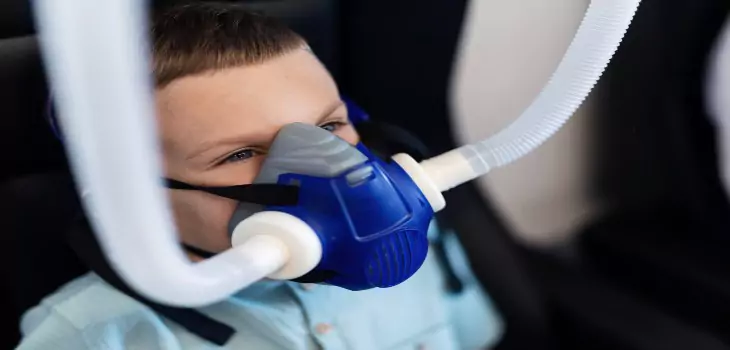
admin
Sep 04, 2025


Visiting the dentist can be scary for children, especially if it involves procedures other than a routine checkup. Many parents are concerned about how their child will cope with fear or discomfort during dental treatments.
This is where sedation methods like laughing gas, often known as nitrous oxide, are brought up. If you have ever considered whether laughing gas is a safe choice for your child, you are not alone.
Parents want reassurance before allowing any form of sedation. To help you make an informed decision, this article examines whether laughing gas is safe for children.
It also explains why many dental professionals, including trusted Hope Island dentist, recommend it as an efficient and secure option.
Laughing gas, also known as nitrous oxide; is a colourless and odourless gas that is commonly used in dentistry to provide sedation. When inhaled, it has a calming effect, reducing a child's anxiousness while keeping them alert and receptive.
It is supplied via a tiny mask worn over the child's nose, allowing them to breathe properly. Unlike general anaesthesia; laughing gas does not make children unconscious. They stay completely aware, of their surroundings while feeling more comfortable and less anxious.
This makes it a popular alternative, for paediatric dentistry particularly for children who have dental anxiety or a poor pain tolerance.
Laughing gas is commonly recommended by paediatric dentists because it provides a safe balance of relaxation and attentiveness. It decreases tension; making dental operations more comfortable and less unpleasant for young patients.
They can sit peacefully, allowing dentists to perform more effective treatments. Another significant advantage is that laughing gas wears off quickly. Within minutes of removing the mask, the effects fade away, allowing kids to return to normal activities.
That is why many parents trust Hope Island dentist to prescribe safe sedation solutions. It not only comforts their children but also makes dental visits more enjoyable.
The main concern of parents is safety, and laughing gas is often believed to be among the safest sedative options available in dentistry. It has been used for decades globally and is largely accepted for usage in children.
When given by a skilled specialist, it is extremely uncommon to cause major negative effects. Most children experience mild sensations, such as dizziness or giggles which is why it is known as laughing gas.
Some children even have nausea at times but this normally resolves quickly. To make sure that every child receives the right amount for their age, size and treatment needs; dentists continually monitor the dosage.
Laughing gas is a popular choice for children's dental operations due to various advantages:
These advantages usually mean, the difference between an unpleasant dental experience and a good one. In the long term laughing gas can even help kids adopt more positive attitude, towards dental care by lowering their level of fear.
While laughing gas is generally safe for most children, there are a few situations where it may not be the best choice. Children with certain respiratory problems, such as asthma or nasal congestion, may react badly to the gas since it needs regular nasal inhalation.
Also children with certain medical issues or allergies may require alternate treatments. This is why parents should always go over their child's medical history, with Hope Island dentist before beginning.
With thorough evaluation, the dentists can decide whether laughing gas is the safest and most beneficial option for the kid.
Parents play an important role in helping children feel comfortable about sedation. Talking openly about what to expect could ease their concerns. You may explain that the dentist will apply a funny nasal mask to make them feel comfortable, almost like they are floating on a cloud.
Keeping the explanation nice and simple helps them not feel overwhelmed. It's also a good idea to follow the dentist's advice before your appointment. To lessen the risk of nausea; some dentists recommend eating a light meal a few hours before the procedure. Reassuring your child, that you will be present before and after the surgery might provide emotional support.
Laughing gas is commonly regarded as a safe, effective, and reliable technique of sedation for children in dentistry. It reduces fear and discomfort, making dental operations far less scary for children.
With a rapid recovery period and an excellent safety record; it remains the preferred choice for paediatric dentists worldwide.